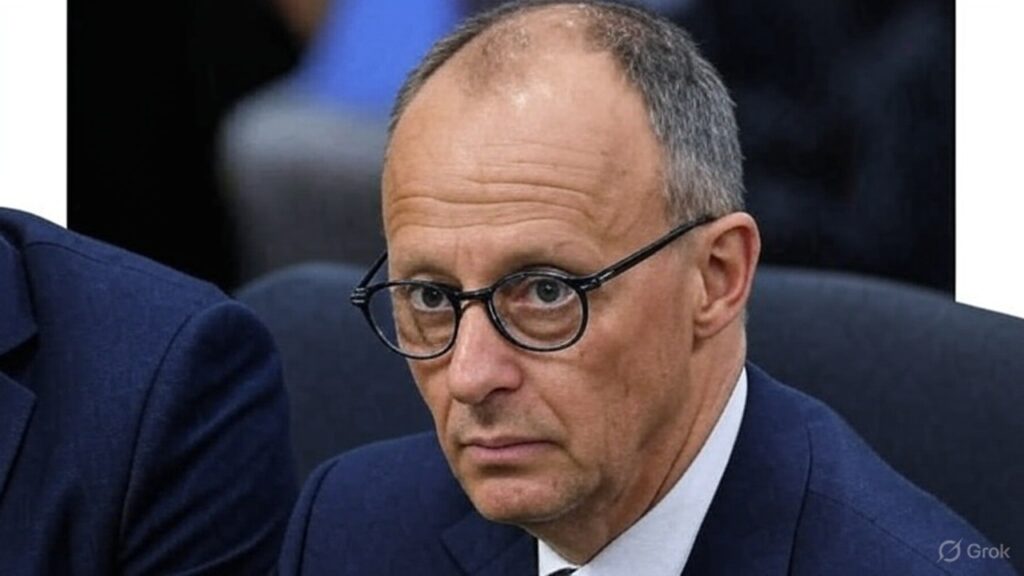Friedrich Merz’s unexpected failure to secure the chancellorship in the Bundestag has plunged Germany into political uncertainty. The far-right AfD is seizing the moment, demanding new elections, while coalition divisions threaten stability. Analysts warn of prolonged turmoil amid global challenges.
By New Delhi Post Desk
Historic Setback for Merz
New Delhi: Friedrich Merz, the conservative leader favored to become Germany’s next chancellor, fell short of the required 316 votes, securing only 310 in the Bundestag. This marks the first time in post-war Germany that a chancellor candidate has failed in the first round, exposing deep rifts within his CDU/CSU-SPD coalition.
AfD Demands New Elections
The far-right Alternative for Germany (AfD), now the largest opposition party with over 20% of the February vote, capitalized on the chaos. AfD co-leader Alice Weidel called the outcome a “good day for Germany,” urging Merz to step aside and demanding fresh elections to resolve the deadlock.
Coalition Fractures Revealed
Despite the CDU/CSU and SPD holding a combined 328 seats, three abstentions, nine absences, and one invalid ballot derailed Merz’s bid. Critics, including Die Linke’s Bodo Ramelow, blamed Merz and SPD’s Lars Klingbeil for mismanaging the coalition, raising doubts about effective governance.
What Happens Next?
A second vote is scheduled for Tuesday afternoon, with the Bundestag having 14 days to elect a chancellor by absolute majority. If unsuccessful, a third vote requiring only a simple majority could still see Merz take office, though his authority is weakened.
Analysts Predict Challenges
Experts like Holger Schmieding of Berenberg Bank believe Merz may still become chancellor but warn that this setback highlights coalition disunity. Franziska Palmas of Capital Economics noted that Merz’s weakened position could hinder Germany’s ability to address economic and defense challenges.
Global Implications
With Olaf Scholz as caretaker chancellor, Germany faces delays in critical engagements, including planned visits to Paris and Warsaw. As Donald Trump’s policies strain NATO and European alliances, Germany’s political instability could undermine its leadership in addressing global economic and security issues.



